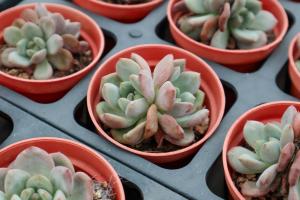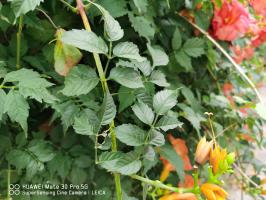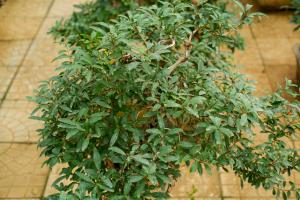How to Stop Ants Nesting in Plant Pots in the UK
Ants can be a nuisance when they start nesting in your plant pots. Not only can they damage the plants, but they can also make it difficult to maintain your garden. However, by following some simple steps, you can easily deter ants from nesting in your plant pots.
Step 1: Remove Food Sources
Ants are attracted to food sources, so the first step is to make sure any spilled food or water is cleaned up from around and in the plant pots. Ants can be attracted to any spilled plant food too, so make sure the application is precise and correct. Additionally, if you have bird feeders in your garden, make sure they are not too close to your plant pots.
Step 2: Get Rid of Existing Nests
If there are already ants in your plant pots, you will need to get rid of the existing nests before any preventative measures will work. To do this, you can use boiling water to pour into the nest entrance, which will kill the ants inside. You can also apply insecticidal bait around the nest entrance, which the ants take back to the nest and spread amongst the colony.
Step 3: Use Physical Barriers
Placing a physical barrier around the plant pots can make it difficult for ants to reach them. You can use materials such as copper tape, petroleum jelly or cinnamon powder around the base of the plant pots as a deterrent. Ants do not like copper or petroleum jelly, and cinnamon can be an irritant to them.
Step 4: Plant Ant-Repelling Plants
There are certain plants that have natural ant-repelling properties, such as lavender, mint and sage. By planting these herbs around your garden and in your plant pots, you can deter ants from coming close to them. Additionally, these plants can also bring some colour and fragrance to your garden.
Step 5: Use Natural Repellents
You can use natural substances to deter ants from nesting in your plant pots. Vinegar and lemon juice are effective ant repellents, so try spraying these around the base of your plant pots. Alternatively, a mixture of baking soda and powdered sugar can be used as bait, which the ants will take back to the nest and consume.
Step 6: Consider Professional Pest Control
If you have tried all the above preventative measures and are still experiencing an ant infestation, it may be time to consider professional pest control. They can use specialized treatments to eliminate the ants from your garden and prevent them from returning.
In conclusion, preventing ants from nesting in your plant pots can be achieved through a combination of removing food sources, getting rid of existing nests, using physical barriers, planting ant-repelling plants, using natural repellents and considering professional pest control. By following these steps, you can enjoy a healthy and pest-free garden in the UK.

 how many times do yo...
how many times do yo... how many planted tre...
how many planted tre... how many pine trees ...
how many pine trees ... how many pecan trees...
how many pecan trees... how many plants comp...
how many plants comp... how many plants can ...
how many plants can ... how many plants and ...
how many plants and ... how many pepper plan...
how many pepper plan...





























